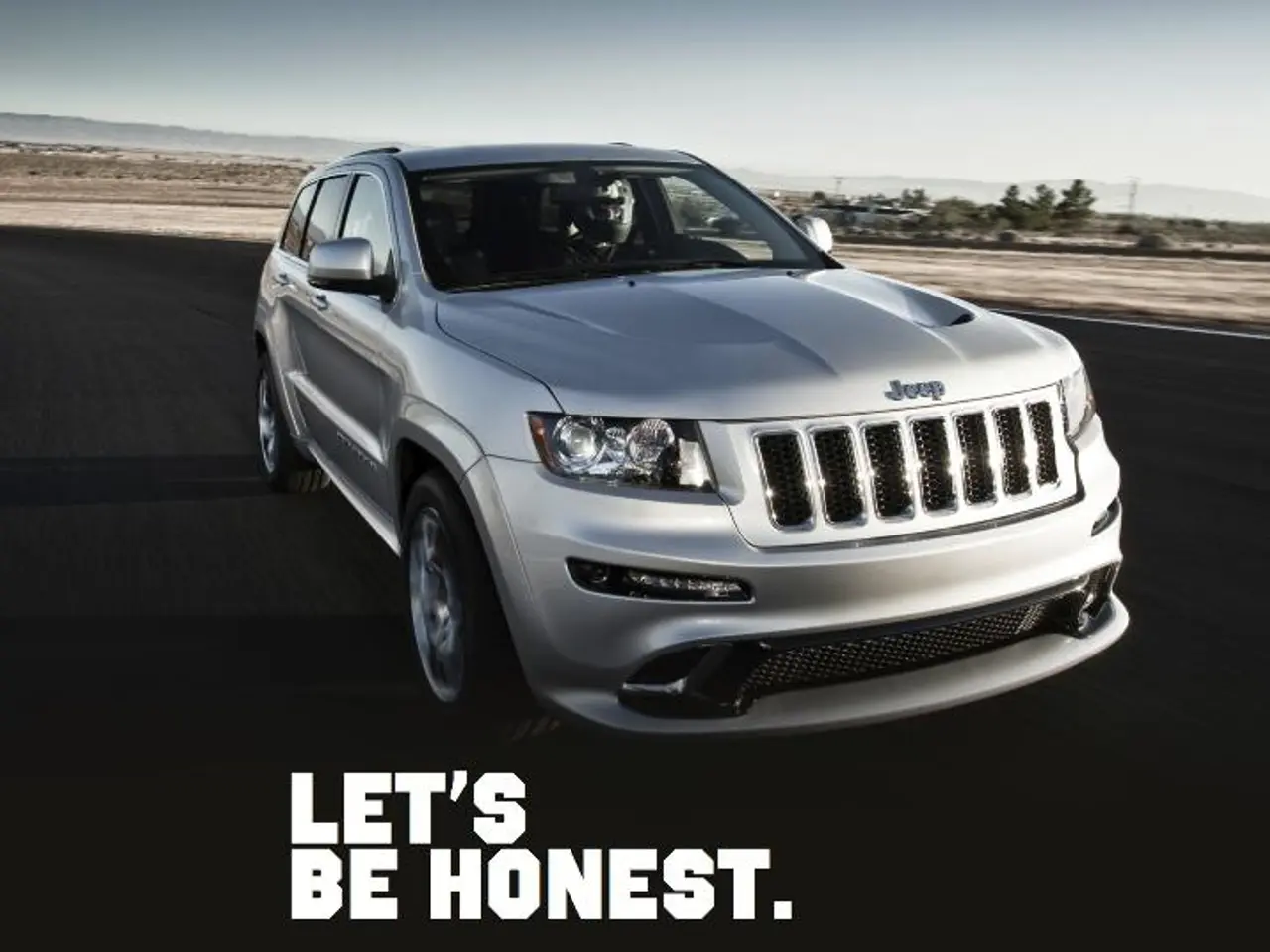Rivian CEO Argues that Trump's Anti-EV Policies Negatively Impact the U.S., Yet Benefit Rivian Automotive Company Directly
In a significant shift for the electric vehicle (EV) market, the Trump administration has announced policy changes that are set to phase out federal tax credits and incentives for EVs, starting late 2025. This decision is expected to have far-reaching implications for automakers, particularly those heavily invested in EV development, such as Rivian.
Key impacts of these policy changes include the end of the $7,500 federal tax credit for new EVs from October 2025, the elimination of a $4,000 credit for used EVs by the same date, and the phasing out of the 30C credit for EV charging station installation from July 2026. These cuts could slow the growth of the EV market, particularly for companies like Rivian that rely on these incentives to keep vehicle prices competitive.
The loss of these tax credits is likely to make EVs more expensive upfront, potentially deterring consumers who rely on these incentives to make their purchase decisions. Data from 2024 suggests that 87% of EV shoppers were influenced by these incentives, indicating a potential decline in consumer demand without them.
RJ Scaringe, the founder and CEO of Rivian, has expressed concerns about these policy changes, particularly the elimination of electric vehicle tax credits and subsidies for green energy. However, he sees a silver lining for Rivian, as the lack of intense competition due to legacy automakers pulling back from EV development could provide a competitive advantage, allowing the company to focus on its product development.
Meanwhile, the future of Tesla's product plans remains uncertain, with the Cybertruck selling less than 5,000 units in the second quarter of 2025. The policy changes are expected to impact the demand for electric vehicles and the development of electric vehicles by automakers.
The irony of the Trump administration's America First rhetoric is present given Rivian's vehicle production and in-house technology sales. The company is planning to launch the R1T Quad electric truck in Lake Tahoe, California, and expects the R2 crossover to roll off the assembly line in Illinois in 2026, followed by a smaller R3 based on the R2 at an even lower price point.
However, dealer franchise laws remain a challenge for Rivian, preventing the company from selling vehicles directly to consumers in nearly a fifth of U.S. states. This could potentially slow sales momentum for the company.
In states like Minnesota, where EVs will cost more to register from 2026, generating additional revenue for road repairs and infrastructure enhancements, the impact of these policy changes may be counterbalanced.
The global auto industry is transitioning towards electric vehicles, and these policy changes are expected to make it harder for American automakers to maintain global leadership in technology. Scaringe predicts that the U.S. will lack choice and competition in the EV segment in 2030 if legacy automakers pull back from EV development.
References: [1] InsideEVs (2025). Trump Administration Announces Phased Elimination of Federal EV Tax Credits. Retrieved from https://insideevs.com/news/504619/trump-administration-announces-phased-elimination-of-federal-ev-tax-credits/ [2] Electrek (2025). Trump's New Policy Changes Eliminate Federal Tax Credits for Electric Vehicles. Retrieved from https://electrek.co/2025/07/01/trumps-new-policy-changes-eliminate-federal-tax-credits-for-electric-vehicles/ [3] Green Car Reports (2025). Trump Administration Phases Out Federal EV Tax Credits, Affecting Rivian and Others. Retrieved from https://www.greencarreports.com/news/1135497_trump-administration-phases-out-federal-ev-tax-credits-affecting-rivian-and-others [4] CNBC (2025). Rivian's R1T Quad Electric Truck to Launch in Lake Tahoe, California. Retrieved from https://www.cnbc.com/2025/07/01/rivians-r1t-quad-electric-truck-to-launch-in-lake-tahoe-california.html
- The policy changes initiated by the Trump administration will phase out federal tax credits for new electric vehicles starting from October 2025, potentially influencing the auto industry's reliance on these incentives, such as Rivian's strategy to keep vehicle prices competitive.
- The elimination of electric vehicle tax credits and subsidies for green energy by the Trump administration, as announced in 2025, could increase the upfront cost of EVs, potentially deterring consumers who primarily consider these incentives during their purchase decisions.
- The global auto industry is undergoing a transition towards electric vehicles, and the phasing out of federal tax credits and incentives for EVs by the Trump administration may make it challenging for American automakers to maintain international leadership in technology.
- In contrast to the expected decline in consumer demand for electric vehicles due to the lack of incentives, Rivian, with its planned R1T Quad electric truck launch in Lake Tahoe, California, and R2 crossover production in Illinois, anticipates a possible competitive advantage as other automakers may pull back from EV development.




